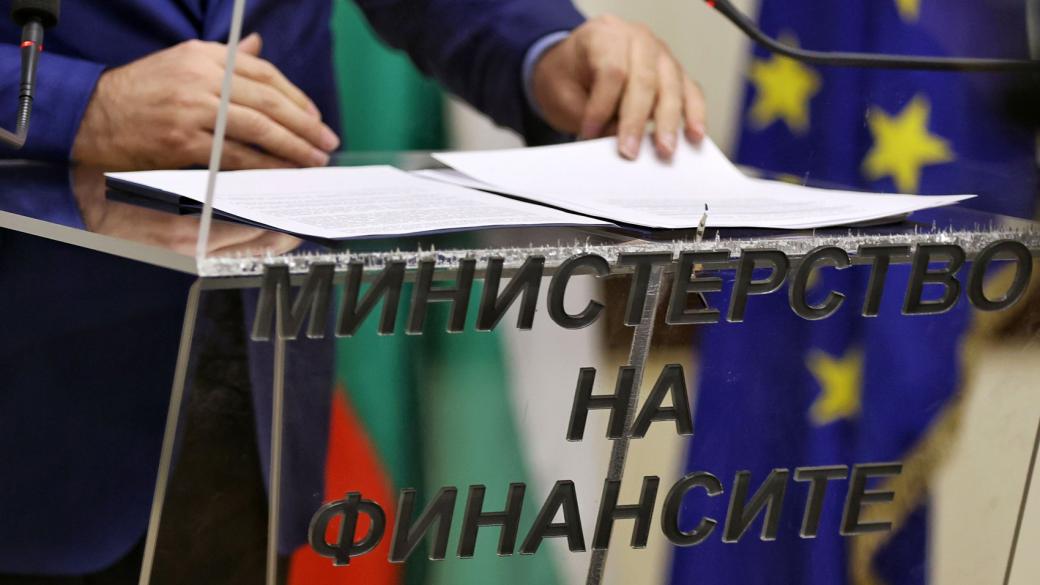A blow to Bulgaria's business environment: tax changes that never happened
Bulgaria had the right to wait until 2030 to introduce the higher corporate tax, but Assen Vassilev decided to hurry

© ECONOMIC.BG / BTA
Bulgaria has made one of its most significant tax changes in the last 15 years, raising corporate tax to 15% for the country's largest companies. The final vote on Tuesday evening came just hours after CRIB and a number of foreign chambers publicly expressed concern about the loss of one of Bulgaria's most competitive advantages — low taxes.
The change was in response to the Organisation for Economic Co-operation and Development (OECD) initiative to introduce a global minimum corporate tax of 15%. Bulgaria will join this already in 2021. Our country, along with several others such as Estonia and Slovakia, had an extended deadline to implement the changes in their legislation — until 2030.
However, Finance Minister Assen Vassilev has decided to speed up the process — whether for faster OECD accession or because of the need for more revenue in the budget. Estonia and Slovakia, for example, are taking advantage of the exemption and are in no hurry to raise taxes.
We could have easily saved six years to come up with policies to offset the negative impact of this tax on the business environment - alternative methods to attract foreign investors," economist Georgi Vuldjev told Economic.bg.
The Bulgarian economy is small and one of the main methods of attracting large investments has been a more competitive tax system.
According to Vuldjev, the directive was "wrongly" signed by Bulgaria and "eliminates the advantage of the Bulgarian tax system.”
The biggest fear is that it will distort the business environment," he said.
And the relief that lawmakers finally accepted — the possibility of reducing the tax base with investments made — is something normal and accepted in all European economies, and “it will have no tangible effect on improving the business environment, but at least it will not be made worse by these unjustified actions of our government."
A check by Economic.bg shows that the Ministry of Finance does not value the relief in the reasons for its proposal.
The specific impact of the proposed rules would be difficult to determine," the MoF wrote.
About 600 companies in Bulgaria will be subject to the additional taxation.
More tax changes
And the corporate tax change was just one of a number of tax changes that Parliament traditionally makes at the end of the year as part of the budget process.
A similar one was the extension of the lower 9% VAT rate for restaurateurs, which seems to be turning from an anti-crisis measure into a permanent one.
The issue is raised every year, but the majority in Parliament votes as if the measure is now permanent. I don't know if it will ever go back to 20%, given how far we have come from the crisis situation in which it was introduced. It will be very difficult to return to the previous situation," Vuldjev adds.
And the effect of the approved "free lunch,” i.e. customers who can't pay their bill if they don't get a receipt, seems to be the most unclear. This was one of Finance Minister Assen Vassilev's unconventional ideas, which he fought for about a year. And now citizens can demand a tax receipt and report if one is not issued. Now, however, the possibility of conflicts between customers and restaurateurs is increasing.
Vassilev's other idea, much less popular but useful according to many experts — updating tax assessments — was not approved. It would have raised property taxes significantly in some cases, but just after the local elections and with almost every Bulgarian owning property, politicians did not dare.
At some point, however, it seems inevitable, as the last time assessments were adjusted was in 2008.
Especially as the housing market in Bulgaria is overheating a bit, especially in Sofia.”
What lies ahead
On Thursday, a final vote on the state social security budget is expected to raise the maximum social security income. So far, there seems to be a majority in Parliament for this, and according to the Finance Minister's plan, it should rise from 3,400 to 3,750 leva. This would be its second increase in the last two years - at the beginning of 2022 it was 3,000 BGN.
The increase in the last two years has created a situation where it is at the level of the pension ceiling, and with this week's likely increase, it will exceed it.
"If the maximum income is raised every year, the pension ceiling must also be raised, because otherwise, over time, the highly paid will simply be subsidising those who pay less in social security," Vuljev points out.
This ”creates an incentive in these highly paid sectors not to tax themselves on their real income, and so paradoxically creates an incentive to increase the size of the informal economy".
This article was translated with the support of DeepL.

 Antoniya Simova
Antoniya Simova 
